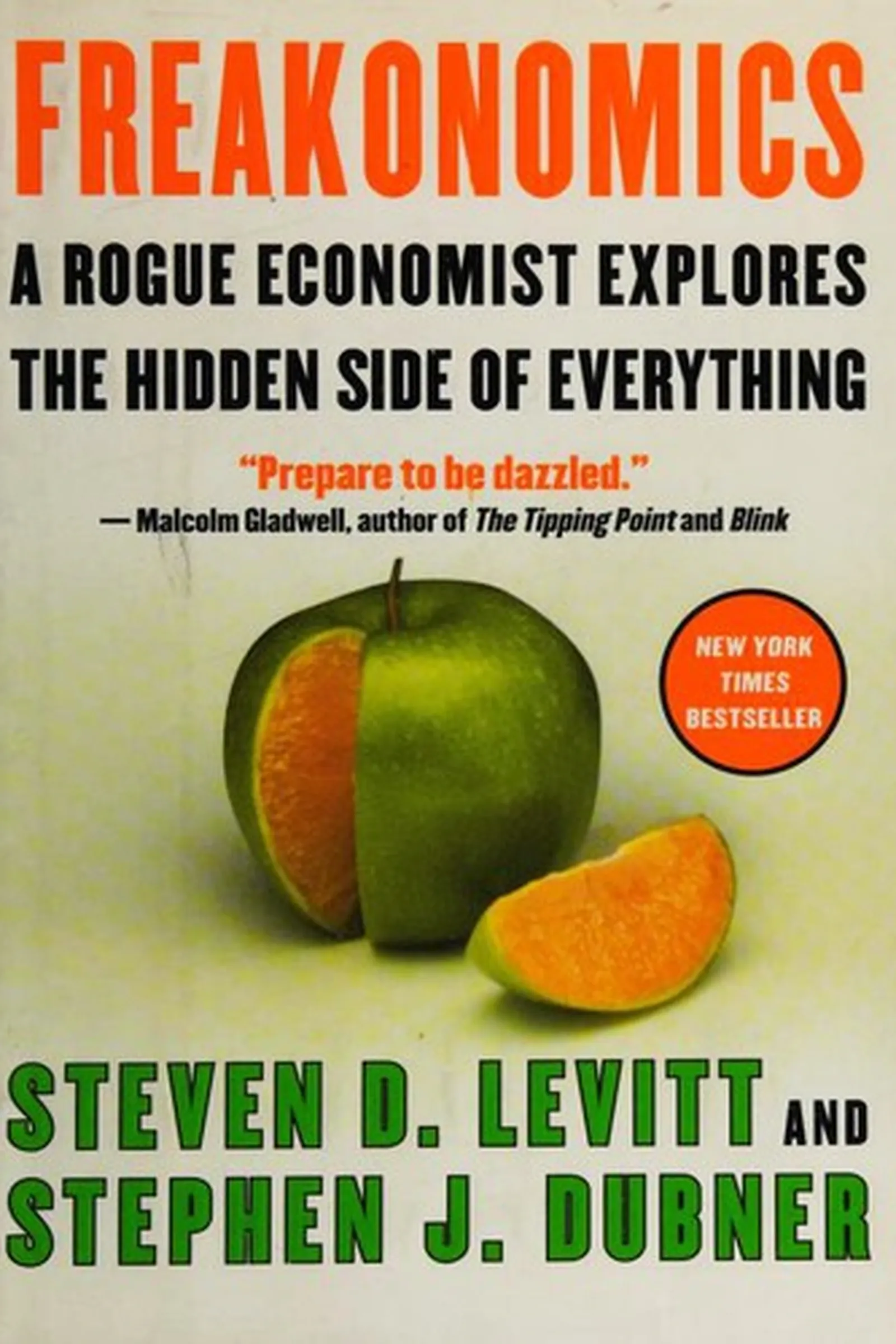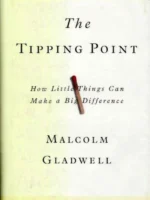Freakonomics, Levitt & Dubner, 2005
- Author: Levitt & Dubner
- Genre: General Nonfiction
- Publisher: William Morrow
- Publication Year: 2005
- Pages: 336
- Format: Paperback
- Language: English
- ISBN: 978-0060733322
- Rating: 4,7 ★★★★★
Freakonomics Review
About
Published in 2005, Freakonomics by Steven D. Levitt and Stephen J. Dubner transforms economics into a lens for everyday mysteries. It’s a book of questions you never thought to ask—what do sumo wrestlers and schoolteachers have in common? How do incentives really work? With humor and data, the authors reveal the hidden logic beneath human behavior.
Overview
Instead of markets or GDP, Freakonomics investigates the economics of crime, parenting, corruption, and cheating. Levitt, a data-driven economist, and Dubner, a journalist, use real-world statistics to expose how incentives—financial, social, or moral—shape decisions. Their storytelling approach makes complex analysis not only understandable but entertaining. The result is a book that feels like detective work done with spreadsheets.
Summary
(light spoilers) Each chapter unpacks a surprising correlation: the decline of crime linked to legalized abortion, real estate agents’ behavior revealing self-interest, or baby names as cultural indicators. The authors argue that data exposes truth more reliably than moral intuition. They never preach; they provoke curiosity. By connecting economics with psychology and sociology, Freakonomics becomes less a textbook than an invitation to think critically about cause and effect in everyday life.
Key Themes / Main Ideas
• Incentives — the engine behind every decision.
• Hidden motives — people respond to what’s rewarded, not what’s right.
• Data over ideology — numbers tell truer stories than opinions.
• Rational irrationality — humans are predictable in their quirks.
• Curiosity — asking unconventional questions reveals deeper truths.
Strengths and Weaknesses
• Strengths — Sharp, witty, and intellectually playful.
• Strengths — Makes economics accessible to non-specialists.
• Weaknesses — Oversimplifies some findings for narrative effect.
• Weaknesses — Lacks cohesive argument—more collection than thesis.
Reviewed with focus on themes, audience, and takeaways — Levitt & Dubner
| pa_author | Levitt & Dubner |
|---|---|
| ISBN | 978-8-582-55044-1 |
| pa_year | 2019 |
| Pages | 600 |
| Language | English |







